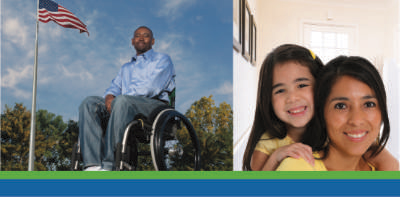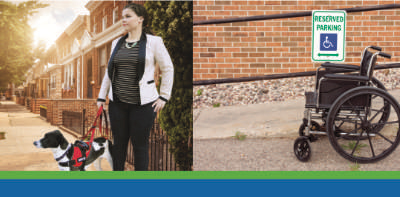Fair Housing Is Your Right. Use It!

A public service message from the U.S. Department of Housing and Urban Development in partnership with the National Fair Housing Alliance. The federal Fair Housing Act prohibits discrimination because of race, color, religion, national origin, sex, familial status or disability. Click here for more information or call the HUD Hotline at 1-800-669-9777(English/Español) 1-800-927-9275(TTY).
|
Your Fair Housing Rights
Housing discrimination is illegal. The federal Fair Housing Act prohibits discrimination in housing related transactions because of race, color, religion, national origin, sex, disability or familial status. Many state and local laws also prohibit housing discrimination based on several additional protected classes.
|
 |
 |
|
Your Fair Housing Rights of Persons with Disabilities to Reasonable Accommodations for Assistance Animals
A “reasonable accommodation” is a change, exception or adjustment to a rule, policy, practice or service that may be
necessary for a person with a disability to have an equal opportunity to use and enjoy a dwelling, including its public
and common use space. Housing providers, including homeowner and condominium associations, must make reasonable accommodations for persons with disabilities, such as allowing assistance animals in a no-pets building. A request need not be in writing, but it is recommended that a request be made in writing so that there is a record of both the request and the date it was sent.
|
 |
 |
|
Fair Housing Rights of Persons with Disabilities
The Fair Housing Act applies to a wide variety of housing transactions, including rentals, sales, home mortgages, appraisals and homeowners insurance. Landlords, real estate agents, lenders, insurance companies, and condominium, cooperative and homeowners’ associations must not discriminate because of one’s membership in a protected class.
|
 |
 |
|
Fair Housing for Families with Children
The law prohibits actions such as denying housing, limiting access to housing, discouraging home seekers, or creating different rules, fees or standards because the family has or is expecting a child/children. “Familial status” means the presence of children under 18 in the household. This includes pregnant women and persons in the process of adopting or securing custody of a child/children. Children include foster children and grandchildren as long as the person has legal custody or written permission.
|
 |
 |






